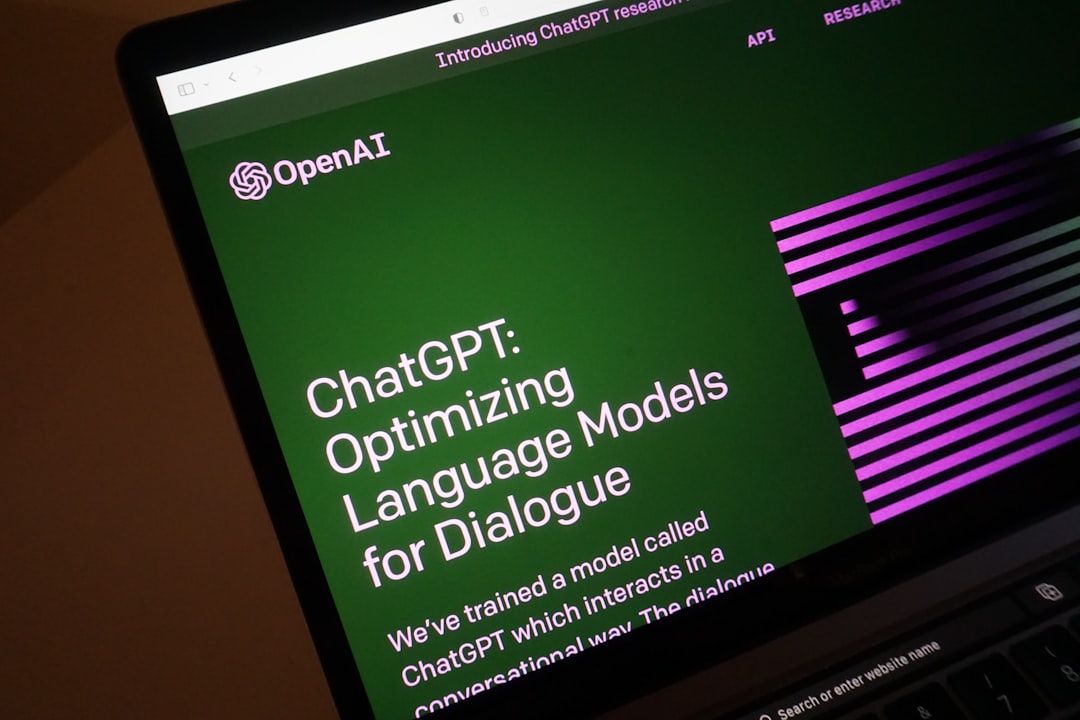How Quantum Computing Could Affect ChatGPT

You’ve probably heard - or read - about ChatGPT over the past few weeks. You might even have used it. It’s already been making headlines - and while that hasn’t always been for the right reasons, it’s definitely sparking a lot of conversations.
The Rise of ChatGPT
Since it was launched at the end of November last year, ChatGPt has gone on to take the internet by storm. ChatGPT is a chatbot that was developed by OpenAI, but it’s unlike any other chatbot you’ve used before. The ‘GPT’ stands for ‘Generative Pre-trained Transformer’ - put simply, it’s a computer program powered by a complex machine learning model. It uses machine learning, a kind of artificial intelligence (AI), to learn patterns and relationships between words, and is able to have human-like conversations with whoever’s using it. With each interaction, it’s able to learn, and keep getting better and better over time. It’s able to do much more than have a conversation, though, which is why it’s caused such a stir over the past couple of months. It can answer questions (like a search engine that talks back to you, effectively), write essays or articles, and even translate text from one language to another.
How Are People Using It?
Just five days after it had launched, ChatGPT already had more than one million users. It can write essays or articles, but that’s not all people have been getting ChatGPT to write - it can even write stories, poems, and tell jokes. For example, when I asked ChatGPT for a limerick about quantum computing, this is what it came back with:
There once was a tech that was new A computing power breakthrough Quantum's the name Ain't no quantum the same It's a realm that's quite hard to construe
This ability to write whole essays with the click of a button has, unsurprisingly, started to worry those working in schools and universities - some have even banned the AI chatbot. Others, though, have started to use it in lessons. Not only can it teach students about better writing practices, but it can also make researching subjects more interactive.
And ChatGPT isn’t just useful for writing things - in fact, the possibilities are endless. Some people have already used it to debug their code, and to generate new code. Others have used it to plan their holidays - tell it what kind of things you want to do and where you’re going, and it can come up with a personalised itinerary for you. Or are you looking for some last-minute gift ideas? Well, ChatGPT can help you there, too.
Could Quantum Computing Be Used With AI?
Unfortunately, ChatGPT isn’t perfect. It can still make mistakes. When Microsoft launched their new search engine tool, which is powered by ChatGPT, it made a number of errors during their public demo. When asked for Gap’s operating margin, for example, the chatbot reported it was 5.9%, when it’s actually 4.6%. It also got the answer wrong when asked about net sales growth. These kinds of mistakes are because ChatGPT is still learning, and it’s limited by the processing power of today’s computers.
With the advent of quantum computers, however, the world of computing is going to take a huge leap forward - and this would significantly improve machine learning, making chatbots like ChatGPT smarter and faster. Quantum computers, which use quantum physics to be both faster and more powerful than traditional computers, would enable machine learning models to process vast amounts of data faster and more efficiently. This would help them to analyse data and recognise patterns - something particularly useful for image and speech recognition, as well as natural language processing (which is how ChatGPT operates).
The Cybersecurity Risks
While quantum computers could be incredibly useful in every industry, they do have a downside - and that’s their impact on cybersecurity. The vast amount of processing power that quantum computers have means that while they could advance machine learning, they could also break any encryption method. Even the most secure encryption methods used today could be easily broken by a quantum computer. Any cyber criminal who started using one of these devices would be able to access any network, stealing data from you, or me, or even financial organisations and governments.
You’ll be relieved to know there are companies working on encryption that could stand up to attacks from quantum computers, and to do that, they’re using quantum encryption. One of these companies is Arqit, a British company. Their solution, QuantumCloud, is a lightweight piece of software that can be installed on any device. Last year, Arqit revealed they’d partnered with Dell to sell computers with their QuantumCloud software already installed. And with more and more people using ChatGPT, the company behind it (OpenAI) should be considering quantum encryption. Especially now that they’ve recently launched ChatGPT Plus for $20 a month. With some people having long chats with the chatbot, they’d rest easy knowing that no one’s eavesdropping on their conversations.
Machine learning and AI isn’t the only field that could benefit from quantum computing - the field could help predict weather and even speed up medical research. It’s impossible to say for certain what else quantum computing might be able to help us to do, but if you want to know more, then just ask ChatGPT.

(A very belated comment, I know!)
Flagging as of possible interest the topic of quantum natural language processing (QNLP): https://en.wikipedia.org/wiki/Quantum_natural_language_processing
While QNLP doesn't (yet?) seem to have connections to LLMs, there's probably something there at the intersection of quantum + generative AI, at least from a quantum-inspired perspective (https://www.forbes.com/sites/forbestechcouncil/2023/04/10/how-quantum-techniques-could-bring-generative-ai-to-the-enterprise/?sh=3884207439aa)